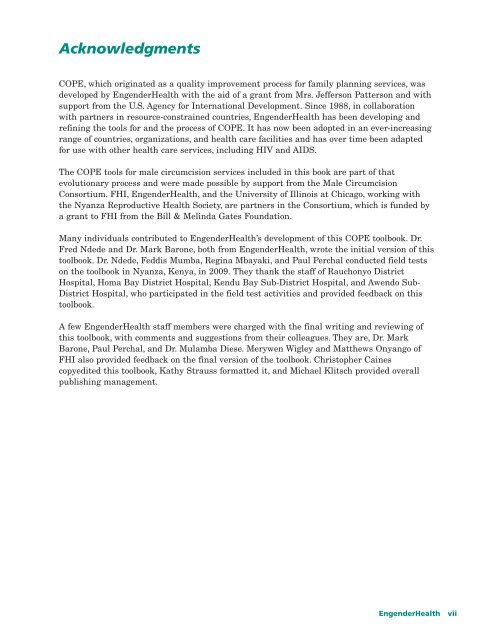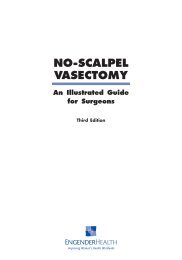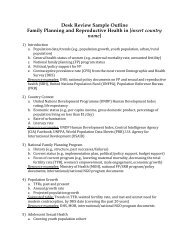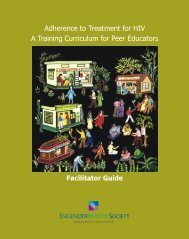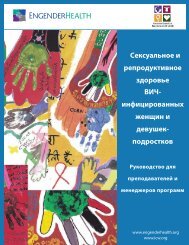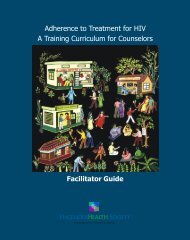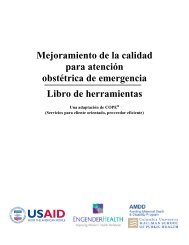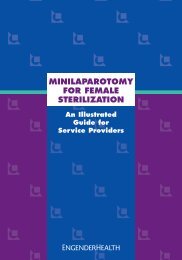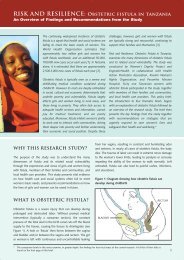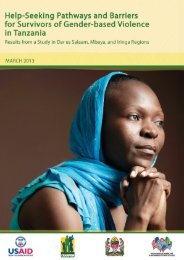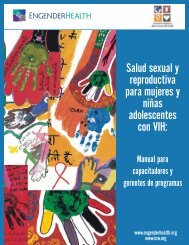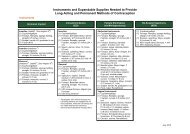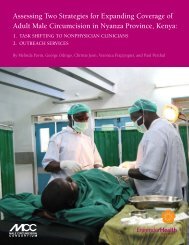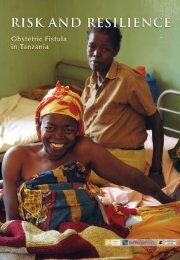COPE® FOR MALE CIRCUMCISION SERVICES - EngenderHealth
COPE® FOR MALE CIRCUMCISION SERVICES - EngenderHealth
COPE® FOR MALE CIRCUMCISION SERVICES - EngenderHealth
Create successful ePaper yourself
Turn your PDF publications into a flip-book with our unique Google optimized e-Paper software.
Acknowledgments<br />
COPE, which originated as a quality improvement process for family planning services, was<br />
developed by <strong>EngenderHealth</strong> with the aid of a grant from Mrs. Jefferson Patterson and with<br />
support from the U.S. Agency for International Development. Since 1988, in collaboration<br />
with partners in resource-constrained countries, <strong>EngenderHealth</strong> has been developing and<br />
refining the tools for and the process of COPE. It has now been adopted in an ever-increasing<br />
range of countries, organizations, and health care facilities and has over time been adapted<br />
for use with other health care services, including HIV and AIDS.<br />
The COPE tools for male circumcision services included in this book are part of that<br />
evolutionary process and were made possible by support from the Male Circumcision<br />
Consortium. FHI, <strong>EngenderHealth</strong>, and the University of Illinois at Chicago, working with<br />
the Nyanza Reproductive Health Society, are partners in the Consortium, which is funded by<br />
a grant to FHI from the Bill & Melinda Gates Foundation.<br />
Many individuals contributed to <strong>EngenderHealth</strong>’s development of this COPE toolbook. Dr.<br />
Fred Ndede and Dr. Mark Barone, both from <strong>EngenderHealth</strong>, wrote the initial version of this<br />
toolbook. Dr. Ndede, Feddis Mumba, Regina Mbayaki, and Paul Perchal conducted field tests<br />
on the toolbook in Nyanza, Kenya, in 2009. They thank the staff of Rauchonyo District<br />
Hospital, Homa Bay District Hospital, Kendu Bay Sub-District Hospital, and Awendo Sub-<br />
District Hospital, who participated in the field test activities and provided feedback on this<br />
toolbook.<br />
A few <strong>EngenderHealth</strong> staff members were charged with the final writing and reviewing of<br />
this toolbook, with comments and suggestions from their colleagues. They are, Dr. Mark<br />
Barone, Paul Perchal, and Dr. Mulamba Diese. Merywen Wigley and Matthews Onyango of<br />
FHI also provided feedback on the final version of the toolbook. Christopher Caines<br />
copyedited this toolbook, Kathy Strauss formatted it, and Michael Klitsch provided overall<br />
publishing management.<br />
<strong>EngenderHealth</strong> vii


